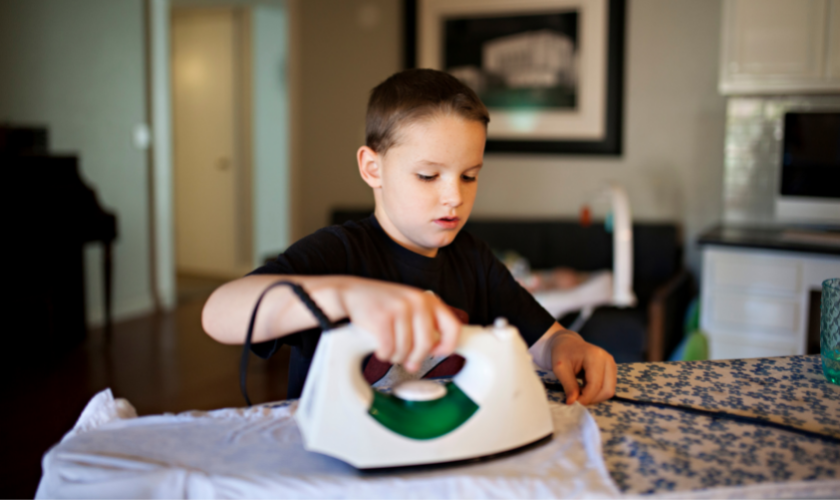
Financial literacy isn’t often taught in schools.
If it is, it’s usually an elective offered in high school — not a mandatory class taught from the start.
But that shouldn’t be the case. The building blocks of money management should be taught from an early age so kids have a grasp on how to budget and pay bills once they graduate and enter the workforce.
Remember, we aren’t raising kids. We’re raising adults.
As such, they should be equipped with skills that will help them be successful in their personal and professional lives.
That’s where Million Bazillion comes in.
This podcast teaches kids (and parents!) the answers to common — and not-so-common — questions about money.
You’ll learn where the concept of money comes from, why negotiation is an important skill, what effect advertisements have on the human brain, and how to save money when the temptation to spend is staring you in the face.
Here are 5 hands-on activities you can pair with listening to Million Bazillion to teach your kids all about money.
5 Hands-On Activities to Promote Financial Literacy in Kids
1. Play “store” at home with real or Monopoly money.

This is a fun activity for younger kids. You can take masking tape and a permanent marker or yard sale price tags and go around the house pricing items for “sale”.
Then, give your child a certain amount of money — real or pretend — and let them figure out what they can afford to buy.
If you have a toy cash register, all the better!
2. Let them open their own checking or savings account.

With many banks, you don’t even have to go into a branch to set up an account.
There are plenty that have dedicated online checking accounts for kids. These accounts have debit cards with parental controls and allow you to designate spending categories. Categories might include “fun money”, charitable giving, or specific savings goals.
It’s important for kids to learn to count coins and paper money, but it’s equally important for them to learn how to use a debit card in today’s digital world.
3. Set up a chore chart and pay them for their work.

This is a controversial topic for many. Parents are split on whether kids should be paid for chores that contribute to the upkeep of the home. That’s a completely understandable sentiment.
However, when we give our kids the opportunity to learn that money is earned by working and how to spend wisely while under our influence, they’re less likely to go out and make major money mistakes as adults.
If you’d rather foster an “all hands on deck” mentality where everyone pitches in without incentive (an awesome approach!), here’s another option. Make a list of labor-intensive or seasonal chores — washing the car, cleaning out the garage, pulling weeds — and set a pay rate for each. Then, give your kids the opportunity to earn a little extra cash by taking on some extra work.
4. Hold a yard sale.

It’s yard sale season and there’s no better way to declutter your home and walk away with a few extra dollars in your pocket.
Get your kids in on the action by letting them help pick out things to sell. You can “hire” them to help you declutter, sort, and price the items (and man the sale!) ― then pay them a percentage of the final total.
You can also let your child set up a table with donuts and coffee for sale. Yard sale shoppers love a little pick-me-up when they’re out searching for deals.
5. Teach them to meal plan, make a grocery list, and shop for groceries — and then let them help in the kitchen!

Share the grocery budget with your child and let them help you scan the store ads, see what’s on sale, and make a meal plan to fit within your budget.
Then, take them shopping and have them keep a tally of what you’re spending. They can learn to compare prices between generic and name brand products, calculate price per unit, and see firsthand the tactics that grocery stores employ to entice consumers to spend more.
Bonus points if you teach them how to clip coupons and stack sales.
Let them help with meal prep too. Life skills for the win!
The Takeaway
Million Bazillion is a wonderful way to introduce the topic of money management with kids. Take it a step further by providing hands-on learning opportunities to reinforce the lessons taught on the podcast.
We’re all ears!
What money lessons do you hope your kids take away from listening to Million Bazillion? We’d love to hear from you! Find us on all our social platforms – Facebook, Instagram, Twitter, and Pinterest – or email us at contact@pinna.fm

 Amy Thetford
Amy Thetford